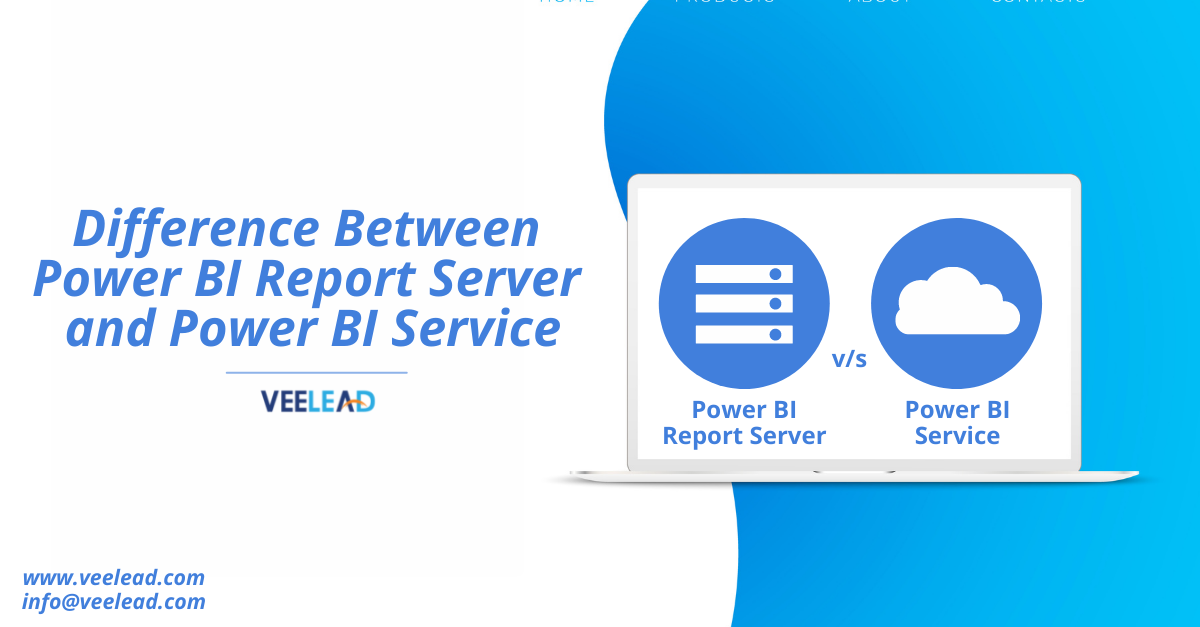

Microsoft Power BI Deployment Suit’s on-premise solution is Power BI Report Server. Microsoft’s Power BI Service, on the other hand, is a cloud service and a cloud solution. Both systems use Microsoft’s Power BI services to create Power BI reports and visualizations, but there are significant variations between the two solutions.
This article will go over some of the significant differences between on-premise and cloud Power BI deployments, as well as some key takeaways to note. It will also go over some important considerations while choosing between the two options.
What is the purpose of the Power BI Report Server?
The Power BI Report Server, like Microsoft SQL Server Report Server, can host.rdl (SSRS) and.pbix (Power BI) reports. It keeps Power BI reports and data within the limits of the local domain network, eliminating the need for a gateway while giving access to both on-premise and cloud-sourced data. In a nutshell, the Power BI SaaS can do everything the Power BI Report Server can.
However, when it comes to choosing between On-Premise and Cloud, there are numerous significant differences. The use of the Premium capacity for your organization’s resources to function is a common point to observe in both cases. Power BI Premium has this feature. When Power BI Premium is purchased, it is installed as an On-Premise solution. The organization is given the option of scaling up and using Power BI Service as needed.
Power BI delivers scalability for your existing business model. The main distinction between the Power BI report server and the Power BI service is explained below.
What are the main advantages and disadvantages of using local (Power BI Report Server) versus remote (Power BI SaaS) Power BI?
There are a few key considerations to keep in mind while comparing the pros and cons of the two variants.
- The SaaS version is completely managed and updated regularly, whereas the on-premise solution is updated three times a year.
- With the SaaS model, reports can be made in the browser, but with the Power BI Report Server, they can only be created with the Power BI Desktop. However, the Power BI Desktop has been optimized for use with the Power BI Report Server.
- Although the Power BI Report Server does not require the Power BI Gateway to access local data, it is essential for SaaS if local SQL Server data or Excel spreadsheets, for example, must be connected as data sources in Power BI data sets.
- The Power BI Report Server does not have dashboards, but the SaaS version does.
- Shared data sets are available in the SaaS, but not in the Report Server.
- The SaaS solution allows users to download and modify data in Excel, but the Power BI Report Server does not have this capability.
- The Power BI Report Server does not have any Q&A functionalities.
Difference Between Power BI Report Server and Power BI Service
Features | On-premises or Private cloud (Power BI Report Server) | Public Cloud (Power BI Services) |
Source data | Cloud and/or on-premises
| Cloud and/or on-premises
|
License | Power BI Premium or SQL Server EE with SA
| Power BI Pro and/or Power BI Premium
|
Lifecycle | Modern lifecycle policy
| Fully managed service
|
Release cycle | Once every 4 months
| Once in a month
|
Create Power BI reports in Power BI Desktop | Yes
| Yes
|
Create Power BI reports in the browser | No
| Yes
|
Gateway required | No
| Yes for on-premises data sources
|
Real-time streaming | No
| Yes
|
Dashboards | No
| Yes
|
Distribute group of reports using apps | No
| Yes
|
Content packs | No
| Yes
|
Connect to services like Salesforce | Yes
| Yes
|
Q&A | No
| Yes
|
Quick insights | No
| Yes
|
Analyze in Excel | No
| Yes
|
Paginated reports | Yes
| Yes
|
Power BI mobile apps | Yes
| Yes
|
ARC GIS maps | No
| Yes
|
Email subscriptions for Power BI reports | No
| Yes
|
Email subscriptions for paginated reports | Yes
| No
|
Data alerts | No
| Yes
|
Row-level security (RLS) | Yes
| Yes
|
Full-screen mode | No
| Yes
|
Advanced Office 365 collaboration | No
| Yes
|
R visuals | No
| Yes
|
Preview features | No
| Yes
|
Custom visuals | Yes
| Yes
|
Which option should you choose?
This is solely depending on the requirements of the company. If your company has to use reporting within its firewalls and security, Power BI Report Server is the way to go. However, Microsoft Power BI Service is advised if the organization wants to investigate, test, and enjoy advanced AI and ML capabilities.
Related Reading:
What Is Power BI Report Server and How to Use It? The Basic Guide
What is the Difference Between Power BI Desktop and Power BI Service?


